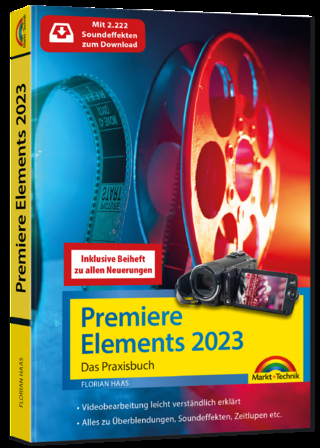
Video Structure Meaning
Morgan & Claypool Publishers (Verlag)
978-1-68173-649-5 (ISBN)
- Keine Verlagsinformationen verfügbar
- Artikel merken
For over a century, motion pictures have entertained us, occasionally educated us, and even served a few specialized fields of study.
Now, however, with the precipitous drop in prices and increase in image quality, motion pictures are as widespread as paperback books and postcards once were. Yet, theories and practices of analysis for particular genres and analytical stances, definitions, concepts, and tools that span platforms have been wanting. Therefore, we developed a suite of tools to enable close structural analysis of the time-varying signal set of a movie. We take an information-theoretic approach (message is a signal set) generated (coded) under various antecedents (sent over some channel) decoded under some other set of antecedents. Cultural, technical, and personal antecedents might favor certain message-making systems over others. The same holds true at the recipient end—yet, the signal set remains the signal set.
In order to discover how movies work—their structure and meaning—we honed ways to provide pixel level analysis, forms of clustering, and precise descriptions of what parts of a signal influence viewer behavior. We assert that analysis of the signal set across the evolution of film—from Edison to Hollywood to Brakhage to cats on social media—yields a common ontology with instantiations (responses to changes in coding and decoding antecedents).
Brian C. O'Connor together with Rich Anderson founded the Visual Thinking Laboratory in The College of Information at the University of North Texas. He holds degrees in Greek and Latin literature, Film Production (Fine Art), and earned his Ph.D. in theory of organization of information at the University of California, Berkeley. He made his first photograph in 1952 and has remained immersed in image making since. He has produced documentaries and art films, has written on photography, chaired several dissertations on various aspects of the use of images, and has recently received the inaugural Teti Research Fellow at the New Hampshire Institute of Art where he studied nineteenth century photographic processes. Richard L. Anderson is currently Director of Information Security for the University of North Texas System. He has a background and publications in Behavior Analysis and earned his Ph.D. at the University of North Texas doing research on functional ontology construction and the information environment. He is an accomplished photographer, he conducts courses in both photography and cybersecurity, and he mentors doctoral students conducting research in various aspects of information theory. Gary Marchionini is the Cary C. Boshamer Professor of Information Science in the School of Information and Library Science at the University of North Carolina at Chapel Hill. His Ph.D. is from Wayne State University in mathematics education with an emphasis on educational computing. His research interests are in information seeking in electronic environments, digital libraries, human-computer interaction, digital government and information technology policy. He has had grants or contracts from the National Science Foundation, the U.S. Department of Education, the Council on Library Resources, the National Library of Medicine, the Library of Congress, the Kellogg Foundation, and NASA, among others. He was the Conference Chair for the 1996 ACM Digital Library Conference and program chair for the 2002 ACM-IEEE Joint Conference on Digital Libraries. He is editor-in-chief for ACM Transactions on Information Systems and serves on the editorial boards of a dozen scholarly journals. He has published more than 150 articles, chapters, and conference papers in the information science, computer science, and education literatures. He founded the Interaction Design Laboratory at UNC-CH.
Preface
Acknowledgments
Introduction
Five Stories to a Model of Video Structure
Coda: Provocations on Filmic Retrieval, Hunting, Meandering, and Browsing
Bibliography
Author Biographies
| Erscheinungsdatum | 21.10.2019 |
|---|---|
| Reihe/Serie | Synthesis Lectures on Information Concepts, Retrieval, and Services |
| Mitarbeit |
Herausgeber (Serie): Gary Marchionini |
| Verlagsort | San Rafael |
| Sprache | englisch |
| Maße | 191 x 235 mm |
| Gewicht | 333 g |
| Themenwelt | Mathematik / Informatik ► Informatik ► Datenbanken |
| Informatik ► Grafik / Design ► Film- / Video-Bearbeitung | |
| Mathematik / Informatik ► Informatik ► Netzwerke | |
| Mathematik / Informatik ► Informatik ► Theorie / Studium | |
| Informatik ► Weitere Themen ► Hardware | |
| ISBN-10 | 1-68173-649-7 / 1681736497 |
| ISBN-13 | 978-1-68173-649-5 / 9781681736495 |
| Zustand | Neuware |
| Haben Sie eine Frage zum Produkt? |
aus dem Bereich


